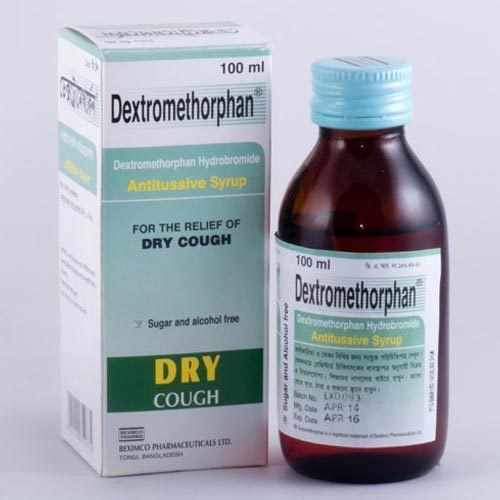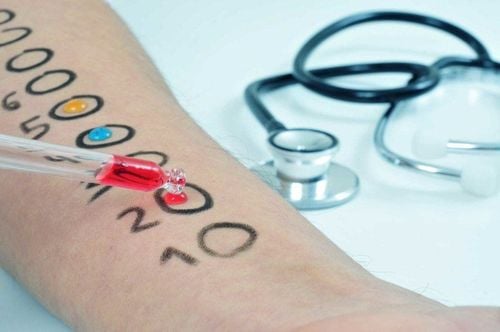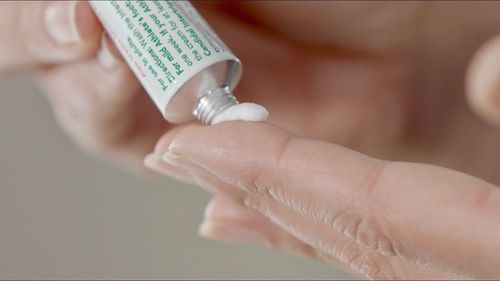This is an automatically translated article.
The article is written by Dr. BS Nguyen Van Dinh - Head of Allergy - Clinical Immunology Unit/ Medical Lecturer - Vinmec Times City Hospital/ Vinuni University.
A drug allergy is an abnormal reaction caused by your immune system overreacting to a drug or its excipients. All drugs have the risk of causing an allergic reaction including western medicine, herbal medicine, traditional medicine and vaccines. However, there are a few drugs that are more likely to cause allergic reactions, such as antibiotics, anti-inflammatory drugs, anti-inflammatory drugs, anesthetics, and contrast agents used in imaging studies. computed tomography, magnetic resonance imaging).
1. What drugs often cause allergic reactions?
Know the drugs that often cause allergic reactions, especially severe allergic reactions so that we can be cautious when using them. It is best to consult a specialist if we have suspicion and high risk of having an allergic reaction to the drug and taking high-risk drugs. The drugs that cause allergies include:
Antibiotics in general, especially betalactam group (penicillin, amoxicillin, cephalosporin...) Pain relievers, anti-inflammatory drugs such as aspirin, ibuprofen, voltaren... opiate (morphine)... Cancer treatment chemicals Contrast agents, anesthetics - anesthetics

2. What will you do if you go to a specialist?
If you have a history of drug allergy, you need to take medicine; If you are taking medicine and show signs of suspected drug allergy, you should see an Allergist - Clinical Immunology for diagnosis, treatment if necessary and advice on prevention of drug allergies. effective. 2.1 Your doctor will ask you about your medication history and related signs to guide the diagnosis What drug-related problems have you had? When does the abnormality appear? How long after taking the drug? How long do symptoms last? Do you take any new medication? Have you taken the drug when there was an abnormality after taking it? Have you taken any medicine to treat it? Do medications relieve symptoms? Have you ever had similar symptoms after taking the drug before? Do you have a history of allergies? Allergic rhinitis ? Asthma ? Atopic dermatitis? Does anyone in your family have allergies? If you have a photograph of a skin lesion, it can be a very useful resource for the doctor to have more information to guide the diagnosis. After asking the patient, the doctor will perform an examination to evaluate the damage caused by drug allergies to you, if any.

2.2 The doctor will perform some tests to make a diagnosis It is extremely important to correctly diagnose the cause. In many cases, overdiagnosed drug allergy greatly affects the effectiveness of treatment and increases medical costs. To diagnose the cause of your drug allergy, your doctor may order a number of tests to make the diagnosis.
At the end of this process, the doctor can conclude that you are allergic to the drug or not? What drug allergy?
Skin test:
To check if you are allergic to a suspected drug, an Allergist-MDLS or a trained nurse will put a small amount of the medicine (mixed) on your skin. diluted to a certain concentration) using a special fine needle to prick it (skin prick). The purpose is for the drug to penetrate the skin. If the body has antibodies against the drug, a local reaction will occur, resulting in an edematous papule, accompanied by itching, which may include a surrounding red halo. This result is read as “positive” and suggests that you may be allergic to the drug. In principle, this test looks for IgE antibodies in the layers of your skin. If the skin prick is negative, the next step is your doctor or specialist nurse may inject a very small amount of the drug to be tested deeper into your skin. The purpose of this is so that the drug can reach the IgE antibody deeper in the skin because there may be more here than on the surface of the skin. Therefore, this intradermal test is usually more positive than the skin prick test, but it can be caused by the drug causing irritation due to deep injection.

For drugs that cause a slow response after a few hours, days or weeks, the doctor may apply a skin test. The skin test is done by mixing the medicine with vaseline or alcohol and then applying it to the skin. The doctor will check to see if the area of the skin that comes into contact with the drug is red, has blisters or not? If so, the test is positive and you may be allergic to the drug that was tested. If the skin test results are negative by your doctor, you can use the tested medicine. However, this test does not completely eliminate your risk of an allergic reaction because it depends on what drugs you try. A specialist doctor will give you specific and complete advice.

Blood tests:
Blood tests are tested to help your doctor rule out other possible causes of symptoms similar to allergic drug reactions such as in the case of viral skin rashes, skin rashes caused by bacterial infection. In addition, blood tests help your doctor find specific IgE antibodies in your blood to certain antibiotics. In the case of anaphylaxis, blood tests also help look for chemicals that are released. In particular, blood tests are also given to you by your doctor in case you cannot do skin tests.
Stimulus test
In some cases where skin tests and blood tests cannot determine if you have an allergy and what the cause is, your doctor may re-administer or re-inject the suspected drug cause a reaction. This is the gold standard to conclude for you. However, this test is only indicated if you have previously had unclear symptoms or mild symptoms. The specialist will weigh the benefits and risks to decide whether or not to do it for you after fully explaining the information to you and getting your consent.
2.3 How will your doctor treat you? After a thorough examination from the doctor, physical examination to detect symptoms, and tests to diagnose you, the next step your doctor may have to treat you.
Stopping the drug: Depending on the different symptoms, the doctor may have different treatments. However, immediate discontinuation of the suspected drug is a measure that can be applied to all cases. Antihistamines: your doctor may give you an antihistamine because it antagonizes histamine, a chemical released during an allergic reaction, which can reduce swelling, vasodilation, and reduce swelling. itchy. Corticosteroids: In some more severe cases, your doctor may treat you with corticosteroid medications to reduce allergic reactions and fight inflammation. Can be used intravenously or orally.
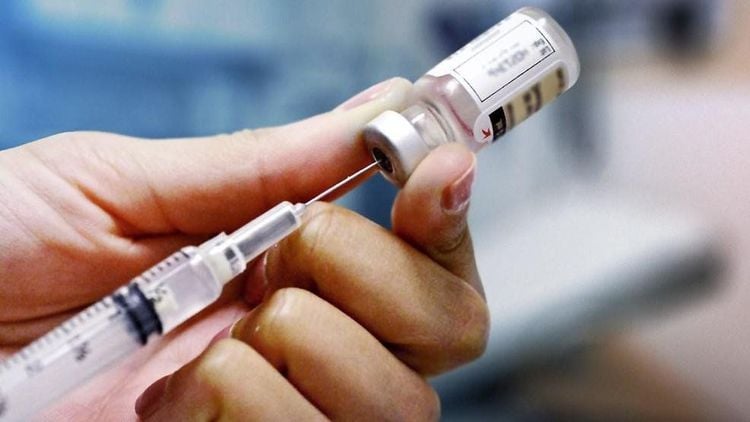
Rapid desensitization
In some special cases, even though you are clearly diagnosed with a certain drug allergy. But since your medical condition requires only treatment with that drug, the specialist must desensitize you. Desensitization is a very specialized and specialized treatment and should therefore only be performed by an experienced physician and in a specialized treatment facility with good emergency support.
3. Prevention of drug allergy
If you are diagnosed with an allergy to a certain medication, it is best to avoid taking that medicine again. If you have to treat a certain disease, it is necessary to be evaluated and guided by a specialist. The steps can be as follows:
You will be provided with complete information about the drug you are allergic to in the medical record. At Vinmec, you are issued a drug allergy card. Accordingly, you can inform the doctors treating you to avoid reusing that drug or drugs that can cause cross-allergies. For you personally, do not use drugs indiscriminately, need to take prescription drugs. It is best to consult a specialist.

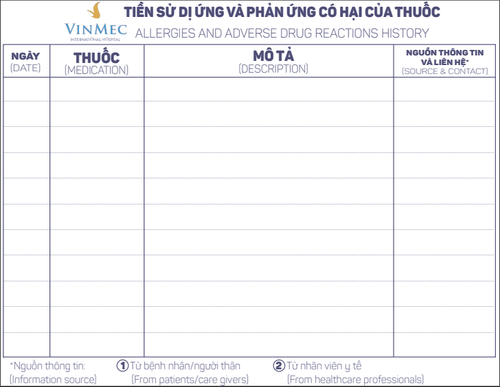
Please dial HOTLINE for more information or register for an appointment HERE. Download MyVinmec app to make appointments faster and to manage your bookings easily.
Articles source reference: Mayoclinic.org







